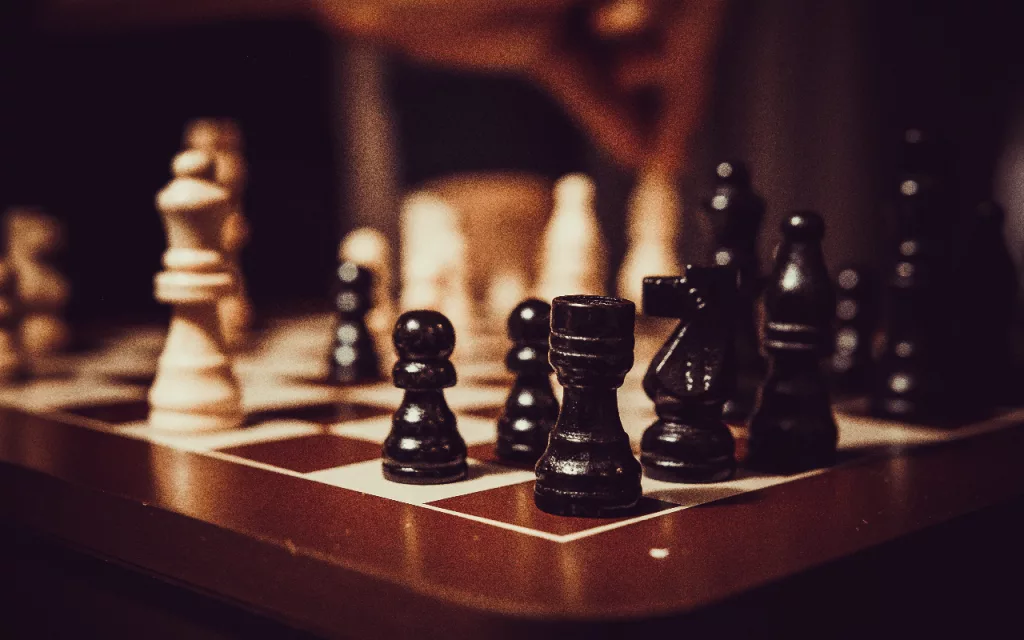Why is Chess Respected? | Let’s dive in!

Chess is a game that has been played for centuries and has stood the test of time. It is a game that requires strategy, critical thinking, and patience. Chess is respected for many reasons, including its historical significance and cognitive benefits.
The origins of chess can be traced back to ancient India, where it was known as chaturanga. Over time, the game evolved and spread to different parts of the world, becoming a global sport that is played by millions of people. Chess has a rich history and cultural impact, with famous players and matches being celebrated and studied for generations.
In addition to its historical and cultural significance, chess is respected for its cognitive benefits. Studies have shown that playing chess can improve memory, problem-solving skills, and creativity. It is also a great way to exercise the brain and keep it sharp. These benefits have led to chess being used in educational settings and even in therapy.
Key Takeaways
- Chess is a game that has a rich history and cultural impact, and is played by millions of people around the world.
- Chess is respected for its cognitive benefits, including improving memory, problem-solving skills, and creativity.
- The game of chess has stood the test of time and continues to be a beloved pastime for people of all ages.
Historical Significance of Chess
Chess has a long and rich history that spans over a millennium. It is believed to have originated in India during the Gupta Empire in the 6th century AD, and from there, it spread to Persia and then to the Arab world. The game was later introduced to Europe by the Moors in Spain during the 10th century.
Throughout history, chess has been played by people from all walks of life, from commoners to royalty. It was not only a game but also a tool for education and training in strategy and tactics. In medieval Europe, chess was even used as a way to teach the art of war to knights.
In the Islamic world, chess was considered an important game of skill and intellect. The caliph elite employed chess masters to compete against and learn from, and chess was used to train the warrior sense “without bloodshed.” Chess was also seen as a way to develop one’s analytical and logical thinking skills.
During the Renaissance, chess became a popular pastime among the intellectual elite. It was seen as a way to exercise the mind and improve mental agility. Many famous figures of the time, such as Leonardo da Vinci and Benjamin Franklin, were known to be avid chess players.
In the modern era, chess has continued to be a respected game, with numerous international tournaments and world championships held each year. Chess has also been incorporated into education programs in many countries as a way to improve critical thinking and problem-solving skills.
Overall, the historical significance of chess lies in its ability to challenge and stimulate the mind, as well as its role in education and training in strategy and tactics.
Chess as a Global Sport
Chess is a global sport that has been played for centuries. It is a game that has transcended borders and cultures, and it is played by millions of people worldwide. In this section, we will explore the popularity of chess and the role of the International Chess Federation in promoting the sport.
Popularity
Chess is a popular sport that has a large following worldwide. It is estimated that there are over 600 million chess players worldwide, with the majority of them residing in Europe, Asia, and North America. The game has also gained popularity in Africa and South America in recent years.
Chess is a sport that is accessible to people of all ages and backgrounds. It is a game that can be played at any level, from beginner to grandmaster. The game’s popularity has also been boosted by the rise of online chess platforms, which have made it easier for people to play the game from anywhere in the world.
International Chess Federation
The International Chess Federation (FIDE) is the governing body of chess. It was founded in 1924 and is responsible for organizing international chess competitions and promoting the sport worldwide.
FIDE has played a crucial role in promoting chess as a global sport. It has organized several world chess championships, including the World Chess Championship and the Chess Olympiad. The Chess Olympiad is a biennial event that brings together teams from different countries to compete against each other.
FIDE also promotes chess as an educational tool. It has developed several programs aimed at introducing chess to children in schools and promoting the game’s benefits, such as improving critical thinking and problem-solving skills.
In conclusion, chess is a global sport that has gained popularity worldwide. The International Chess Federation has played a crucial role in promoting the game and organizing international competitions. The game’s accessibility and the rise of online chess platforms have also contributed to its popularity.
Cognitive Benefits of Chess
Chess is a game that has been played for centuries and has gained a reputation for being a game of intelligence. It is not only a fun game but also a game that offers numerous cognitive benefits. Here are some of the cognitive benefits of chess:
Improves Memory
Playing chess requires a player to remember various moves and strategies. This exercise of memory helps to improve memory skills. Studies have also shown that playing chess can help to prevent memory loss and dementia in older adults.
Enhances Problem Solving Skills
Chess is a game that requires players to think ahead and anticipate their opponent’s moves. This exercise of problem-solving skills helps to enhance problem-solving abilities. Players learn to analyze a situation, identify the problem, and come up with a solution. This skill can be applied not only in the game of chess but also in real-life situations.
Boosts Creativity
Chess is a game that requires creativity and imagination. Players need to come up with innovative strategies to win the game. This exercise of creativity helps to boost creativity skills. Players learn to think outside the box and come up with unique solutions to problems.
In conclusion, chess is not only a game of fun but also a game that offers numerous cognitive benefits. It helps to improve memory skills, enhance problem-solving abilities, and boost creativity skills.
Cultural Impact of Chess
Chess has had a significant cultural impact, inspiring and influencing literature, film, and television. Here are some examples of how chess has been represented in these media.
Chess in Literature
Chess has been a recurring theme in literature for centuries. From Lewis Carroll’s “Through the Looking Glass” to Vladimir Nabokov’s “The Luzhin Defense,” chess has been used as a metaphor for life, war, and love. In “The Queen’s Gambit,” Walter Tevis’ novel about a young girl’s rise through the ranks of competitive chess in the 1960s, chess is used to explore themes of addiction, loss, and redemption.
Chess in Film and Television
Chess has also been a popular subject in film and television. In the 1993 movie “Searching for Bobby Fischer,” a young chess prodigy struggles to balance his love of the game with his desire to be a normal kid. In the Netflix series “The Queen’s Gambit,” based on Tevis’ novel, a young orphan girl discovers her prodigious talent for chess and battles addiction and personal demons on her way to becoming a world champion.
Chess has also been used as a plot device in many films and TV shows. In “The Thomas Crown Affair,” a chess game between the titular character and his love interest serves as a metaphor for their sexual tension. In “Harry Potter and the Philosopher’s Stone,” the characters play a life-sized game of chess to advance through a dangerous obstacle course.
Overall, the cultural impact of chess is undeniable. Its ability to inspire and influence art and media is a testament to its enduring popularity and respect in society.
Conclusion
Chess has been played for centuries and has earned a reputation as a respected game. It is a game of strategy and intellect that requires skill, patience, and practice. Chess is more than just a game; it is an art that requires creativity and imagination. It is a game that appeals to people of all ages and backgrounds, and it has many benefits that go beyond entertainment.
One of the reasons why chess is respected is that it is a game that requires skill rather than luck. Unlike other board games, the outcome of a chess game is more dependent on the player’s skill than on chance. Chess is a logical, aesthetic, and adventurous game that requires courage to make certain moves. It is a game that challenges the mind and helps to develop critical thinking skills.
Another reason why chess is respected is that it is a game that brings people together. Chess is played all over the world and is a universal language that transcends cultural and language barriers. It is a game that can be played by people of all ages and backgrounds, and it is a great way to socialize and meet new people.
Moreover, chess has many benefits that go beyond entertainment. It helps to prevent Alzheimer’s, exercises both sides of the brain, and increases creativity and imagination. It also teaches players how to win and lose gracefully, and it promotes good sportsmanship and fair play.
In conclusion, chess is a respected game because it requires skill, brings people together, and has many benefits that go beyond entertainment. It is a game that challenges the mind, promotes critical thinking, and teaches players important life skills. Chess is an art that has stood the test of time and will continue to be respected for many years to come.








